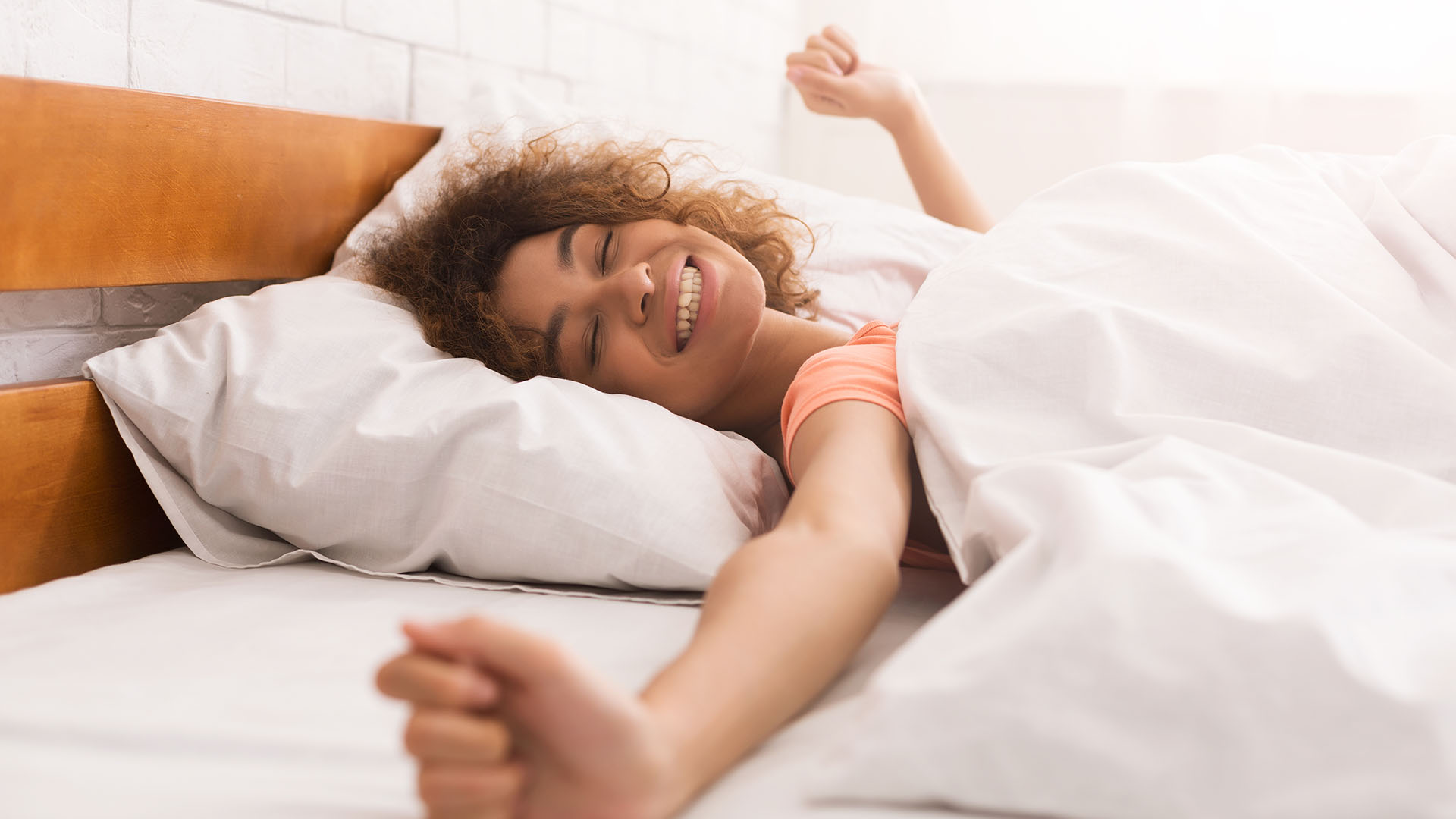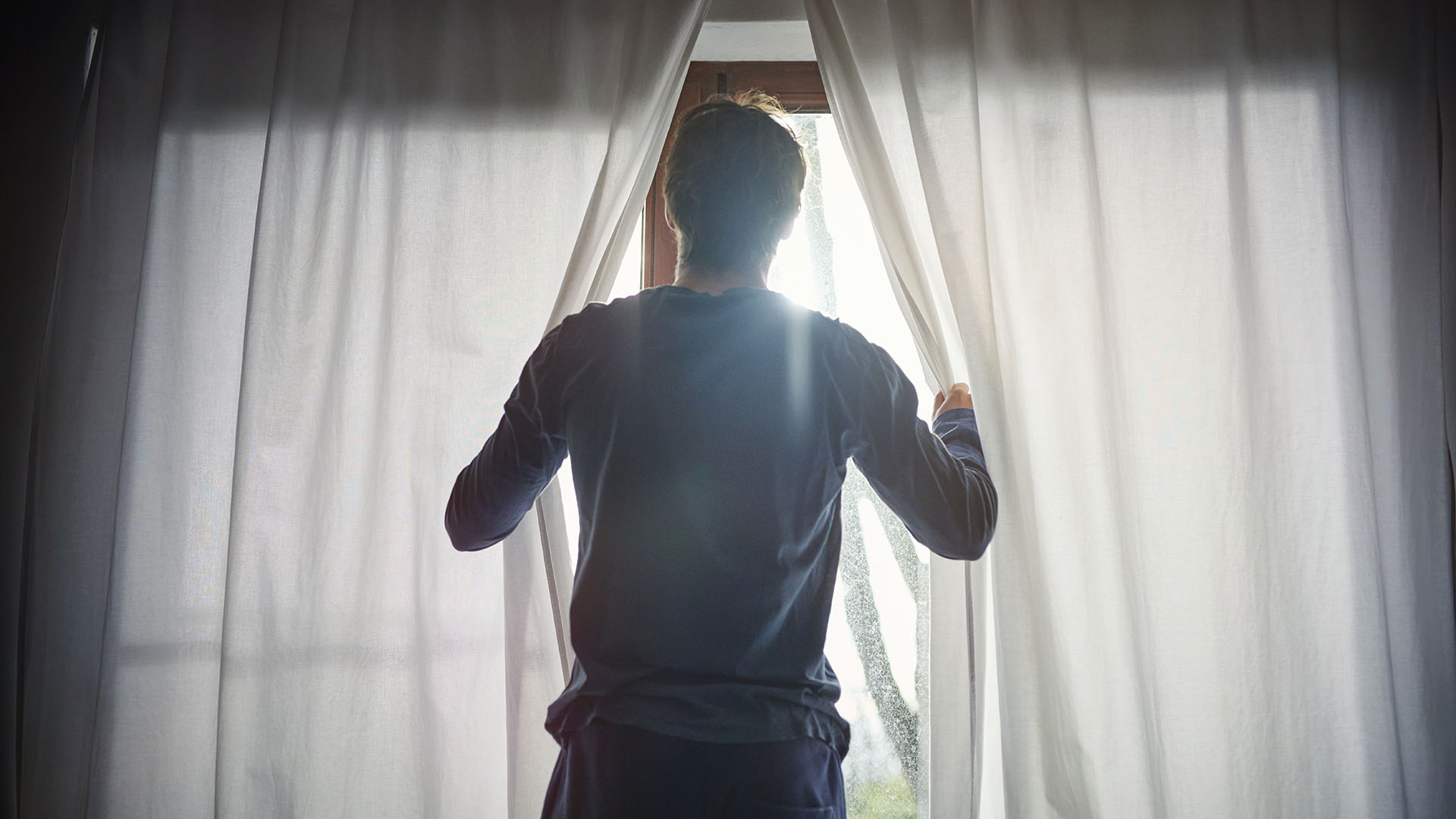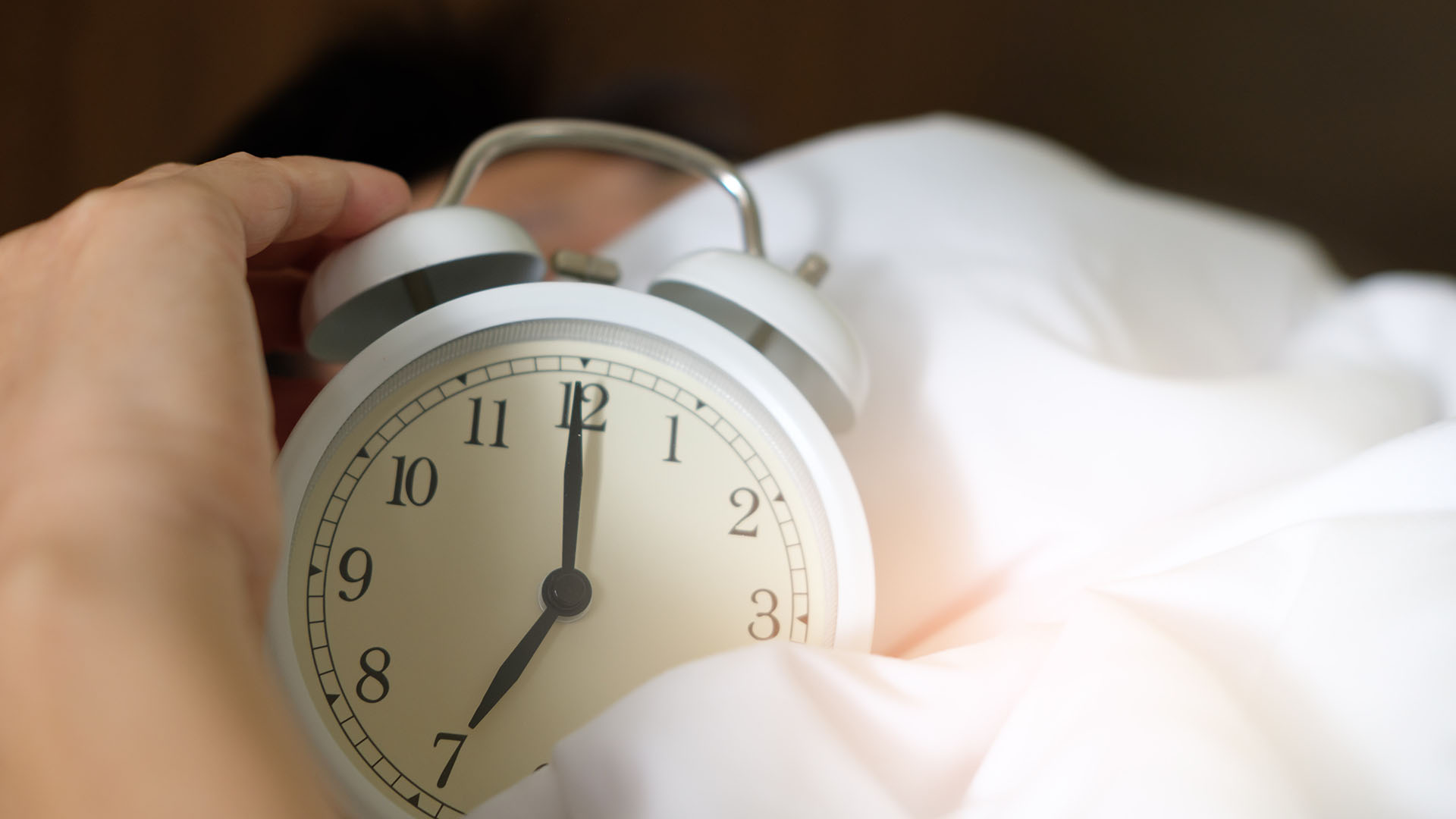
Do you ever wonder why you naturally follow specific sleep and wake times, and have more (or less) energy at certain parts of the day? How about if there's a biological reason why you tend to be an early bird or a night owl, or fall somewhere in-between?
You can find answers to these questions and more by digging into the concept of sleep chronotypes. We asked Kelly Murray, a certified pediatric and adult sleep consultant, to share the ins and outs of the four sleep chronotypes. And later: actionable tips for each chronotype that can help them make the most of their day and enjoy restful sleep come bedtime.
What is a sleep chronotype?
"Chronotypes are the classification of the natural timing of your circadian rhythms," Murray begins. "Your circadian rhythm is your body's clock that dictates the time in which you're sleepy, alert, and hungry. It controls the timing of digestion, your body temperature, and even wound healing," among many other bodily processes and functions.
While it's fun to figure out which one you are, Murray says that chronotypes are actually backed by science. "Research shows that chronotypes are inherited from family members, which indicates that genetics play a role," Murray explains.
What are the 4 sleep chronotypes?
"We used to think there were only two chronotypes: night owls and early birds," Murray shares, "but we know humans are much more complicated than that."
Read on for a description of each sleep chronotype. If you're still not quite sure which one you are, try this sleep chronotype quiz from Michael Breus.
Today, the most popular classification system comes from clinical psychologist and world-renowned sleep medicine expert Michael Breus, whose system splits people into lion, bear, wolf or dolphin.
Other sources use different names or animal profiles to illustrate the same or a similar concept. For example, in 2022, Fitbit added 'Sleep Animals' to its Sleep Score feature; there you're classified as either a giraffe, bear, dolphin, hedgehog, parrot or tortoise.
It's Michael Breus' classification that most people use, though, so we'll focus mainly on that one in this article. Here's a brief introduction to each sleep chronotype.
What is the lion sleep chronotype?
You can think of lions as early birds with type A personalities. "Their philosophy is 'early to bed, early to rise', and they typically get more done before 8am than most of us get done all day," Murray shares. "Their usual schedule is to wake around 5-6am and go to sleep between 9 and 10pm."
As we can see, lions have abundant energy upon waking and are highly productive. Murray says that these traits translate into excellence at the workplace, and that lions tend to be bosses and leaders. However, lions may have difficulty striking a healthy work-life balance and can feel worse for wear by nighttime. "With all of that early morning business energy typically comes the side effect of social life depletion. Lions just can't stay awake to socialize in the evening," Murray explains.

What is the bear sleep chronotype?
According to Murray, bears are lucky since they comprise around half of the population – and thus standard schedules fit their chronotype best. "Our work and social schedules are adapted to a bear's biological clock, given their majority status," she explains. "Bears follow a solar schedule, waking with the sunrise and falling asleep a few hours after sunset. Their usual bedtime is around 11am and they wake around 7am."
Bears are socially oriented and have a strong need for eight hours of rest to feel and function their best. One of their biggest challenges is that they tend to deviate from their standard sleep schedule – perhaps not clocking in those eight hours they need – and suffer from fatigue and/or ongoing sleep imbalances.

"They tend to stay awake a little bit too late, especially during the week, so the bear's sleep deprivation builds," Murray explains. "When the weekend comes, that bear is extra sleepy and they sleep in. As a result, their circadian rhythm shifts later."
Since the bear's melatonin will start pumping later than usual from sleeping in, they often have trouble sleeping on Sunday night. "Our bear is going to lie awake, stressing out about the fact that they can't sleep, and they end up starting Monday off on a bad note," Murray continues. "It takes a couple of days for their body clock to shift earlier again, and by the time it does, the cycle starts all over again over the weekend."
What is the wolf sleep chronotype?
Wolves are akin to night owls and the opposite of lions: late to bed and late to rise. Murray says that they're often creative types – such as artists and entertainers – whose creative juices usually flow only after the sun sets. "They typically have a lot of energy at night and prefer a later bedtime, around midnight to 1am, which means they are not waking up until at least 8 to 9am," she explains.
Murray notes that this sleep schedule is fine if wolves have the autonomy to work when they choose to. "However, for those wolves out there working 9-to-5 [jobs], this chronotype can make it challenging to have energy in the morning when you are expected to be productive," she explains.

What is the dolphin sleep chronotype?
Simply put, dolphins are insomniacs with erratic sleep schedules. They rarely get the seven to nine hours of sleep that the majority of adults require. "Just as dolphins in the ocean sleep with 50 percent of their brains shut down, insomniacs, too, can't shut their brains all the way down," Murray shares. "They don't have a typical schedule as they have issues falling asleep and staying asleep – and we all know how important sleep is. Sleep gives us energy, but it's also essential for our immune system, our metabolism, and our emotional and physical health and well-being."
Murray continues to say that dolphins are highly intelligent but prone to neuroses. If only they could get higher quality, more consistent sleep, they'd be able to achieve more and feel healthier.

Can I change my sleep chronotype?
While it's possible to adjust your circadian rhythm, chronotypes are more innate, so changing from one to another is unlikely. "You can't fight mother nature, but you can alter the timing of certain activities to shift your schedule slightly," Murray explains.
Once you figure out your sleep chronotype, you can make specific adjustments to promote better sleep, more energy, and a greater sense of well-being across the board.
Here are Murray's top tips for maximizing productivity for each chronotype.
Tips for Lions
Exercise later in the day
"This will increase your cortisol (alertness hormone) levels later in the day, giving you the energy you need to stay awake in the evening," says Murray.
Avoid carbohydrates in the evening/at night
"Carbohydrates convert into serotonin, which converts into melatonin (the sleep hormone). Instead, opt for protein to sustain you," she advises.
Tips for Bears
Aim for eight hours of sleep every night
Avoid temptations to stay up past your bedtime so you don't rack up a sleep deficit and feel like you need to sleep more on the weekends to balance things out.
Stick to a consistent sleep and wake time
Murray says a steady bedtime and wake time, even on the weekends, "can avoid sleep issues come Sunday" that trickle into a Monday slump or low energy even through mid-week.

Tips for Wolves
Exercise in the morning
"The combination of getting direct sunlight with movement will help give the boost of energy that a wolf needs to make it through the morning," Murray shares.
Avoid eating late at night
Murray says that wolves typically eat dinner around 6pm and get the urge to reach for a snack around 10pm, which can lead to or worsen several issues. "Instead, have a late-day snack to control your blood sugar and make sure it contains protein, then eat dinner around 8pm," she advises. This modification can promote blood sugar stability, curb cravings, and keep digestion (and sleep) on a better track.

Tips for Dolphins
Do a late afternoon 'brain dump'
Since Dolphins are prone to rumination and stress – which contribute to their insomnia – Murray recommends that they write out their worries, as well as to-do lists, well before sunset as an outlet for their inner monologues. "Lastly, write some thoughts you have around your sleep, especially if they're negative," she advises. From there, evaluate if these statements are actually true, and to rewrite more positive statements about sleep.
Proceed with something calming
Immediately after writing out your 'brain dump,' Murray recommends following up with something that will put you at ease. "Do a quick meditation or some deep breathing so that you can completely decompress and settle your mind," she shares. Doing so can help reduce the chances of staying up until the middle of the night with an overactive brain on autopilot.







